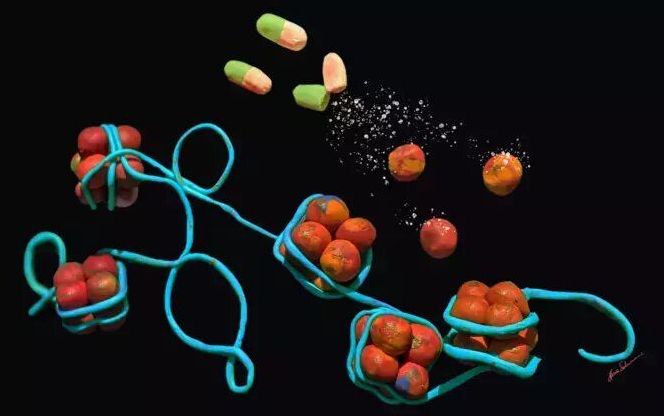Immortal gut biome o.o
Our genetic material is stored in our cells in a specific way to make the meter-long DNA molecule fit into the tiny cell nucleus of each body cell. An international team of researchers at the Max Planck Institute for Biology of Aging, the CECAD Cluster of Excellence in Aging Research at the University of Cologne, the University College London and the University of Michigan have now been able to show that rapamycin, a well-known anti-aging candidate, targets gut cells specifically to alter the way of DNA storage inside these cells, and thereby promotes gut health and longevity. This effect has been observed in flies and mice. The researchers believe this finding will open up new possibilities for targeted therapeutic interventions against aging.
Our genetic material lies in the form of DNA in every cell nucleus of our body cells. In humans, this DNA molecule is two meters long—yet it fits into the cell nucleus, which is only a few micrometers in size. This is possible because the DNA is precisely stored. To do this, it is wound several times around certain proteins known as histones. How tightly the DNA is wound around the histones also determines which genes can be read from our genome. In many species, the amount of histones changes with age. Until now, however, it has been unclear whether changes in cellular histone levels could be utilized to improve the aging process in living organisms.
A well-known anti-aging compound with a new target
The drug rapamycin recently became one of the most promising anti-aging substances and shows positive effects on health in old age. “Rapamycin turns down the TOR signaling pathway that regulates a wide spectrum of basic cellular activities such as energy, nutritional and stress status. In short, we use rapamycin to fine-tune the master regulator of cellular metabolism,” explains Yu-Xuan Lu, postdoc in the department of Linda Partridge and first author of the study. “Meanwhile, we know that histone levels have a critical impact on the aging process. However, we had no idea whether there is a link between the TOR signaling pathway and histone levels, and more importantly, whether histone levels could be a druggable anti-aging target.”
